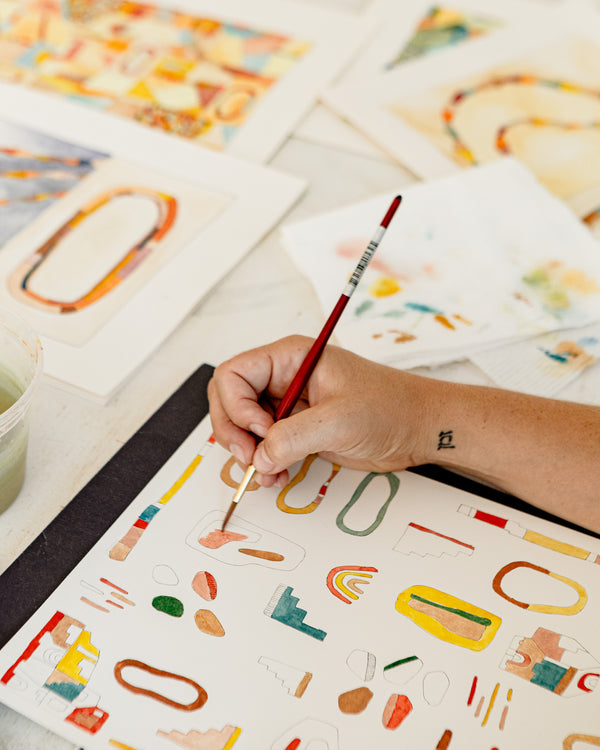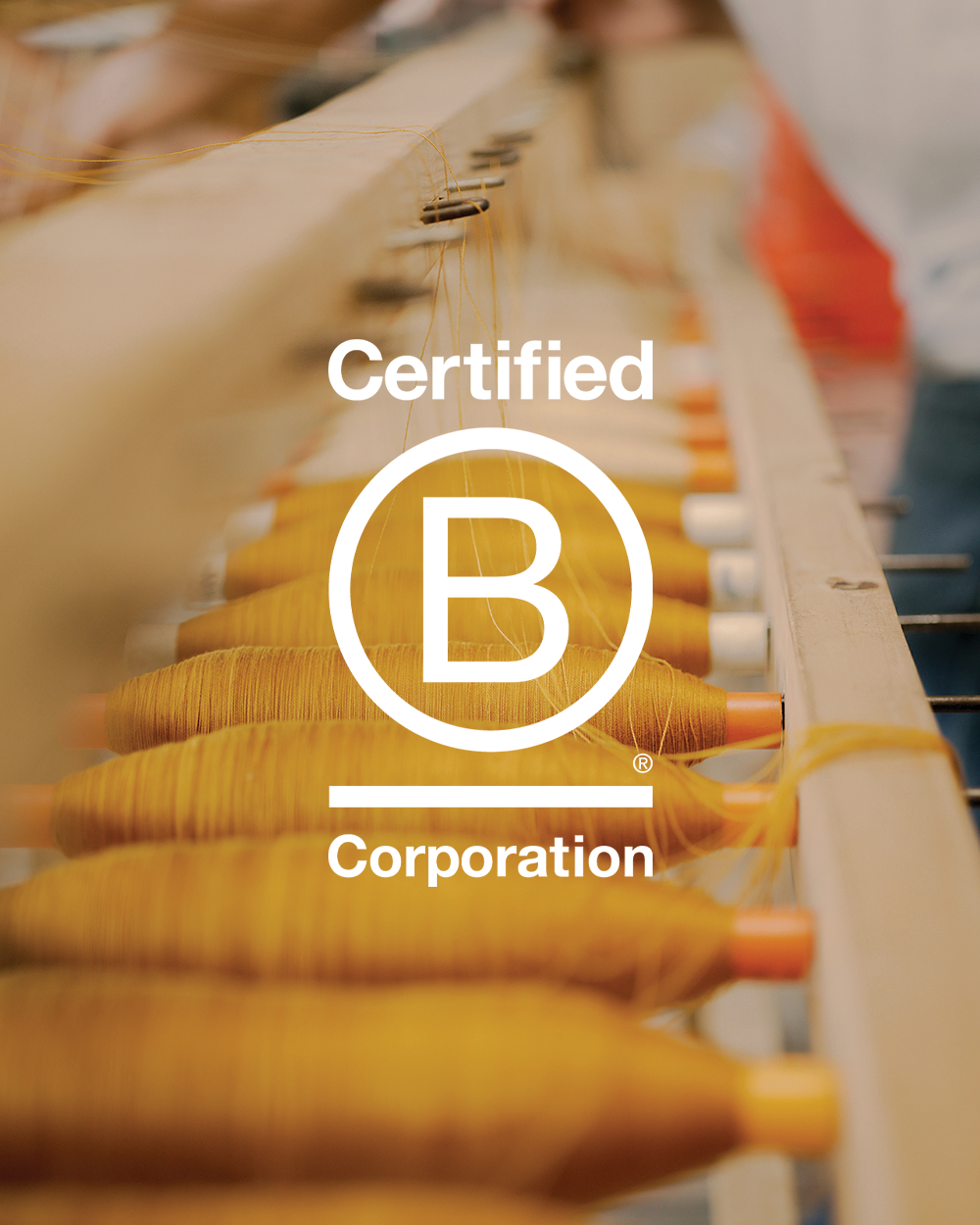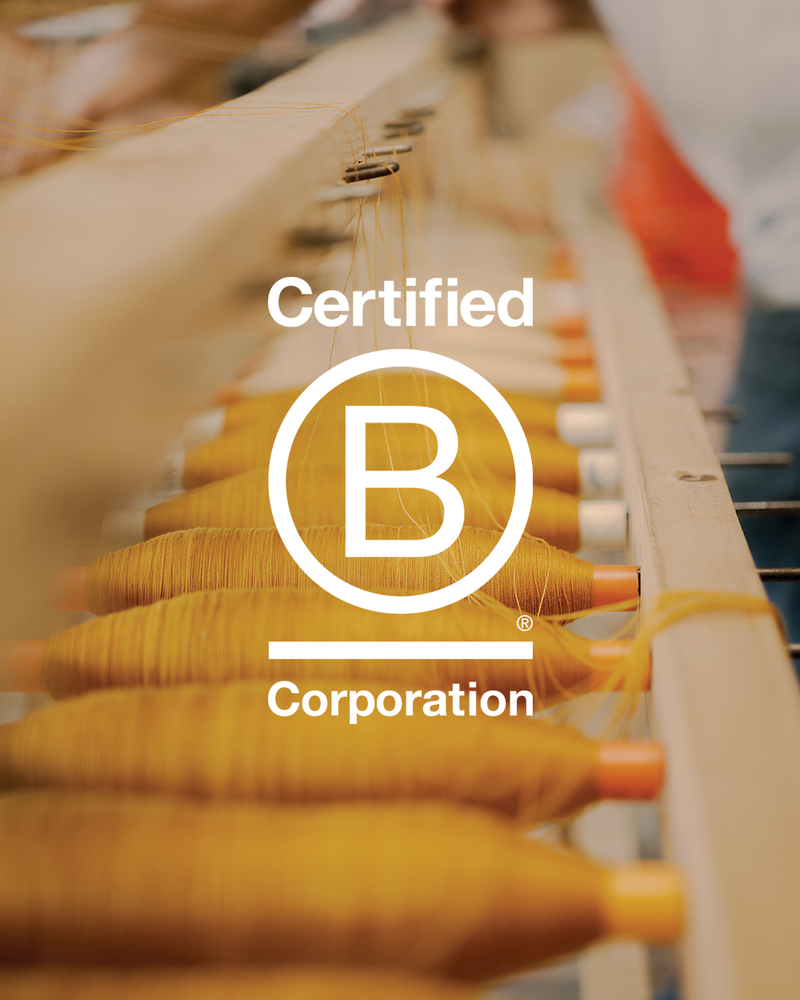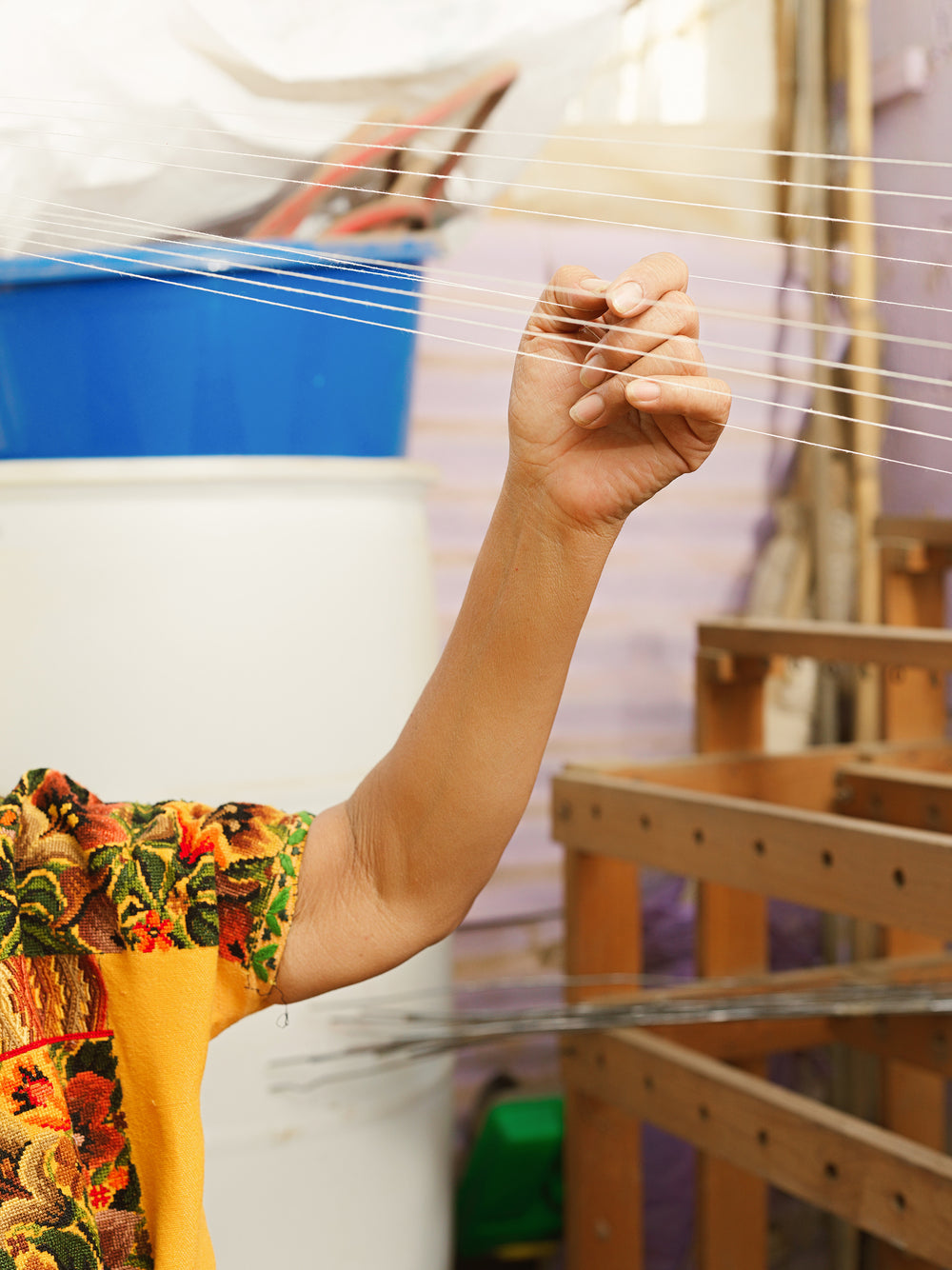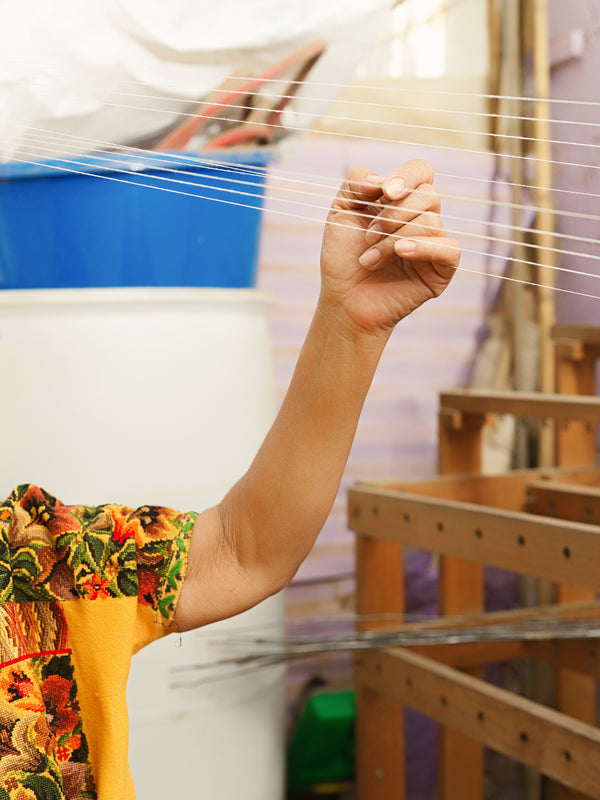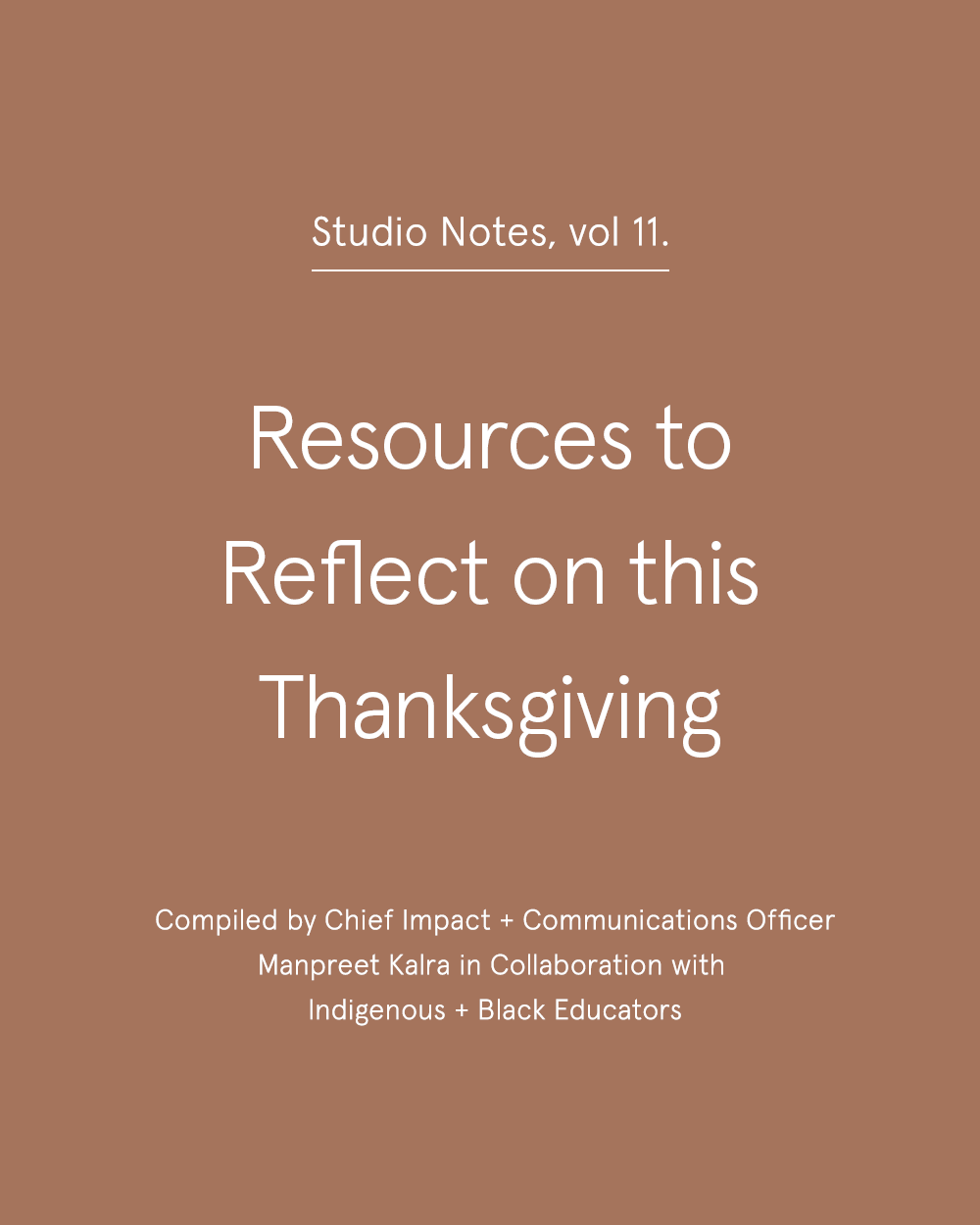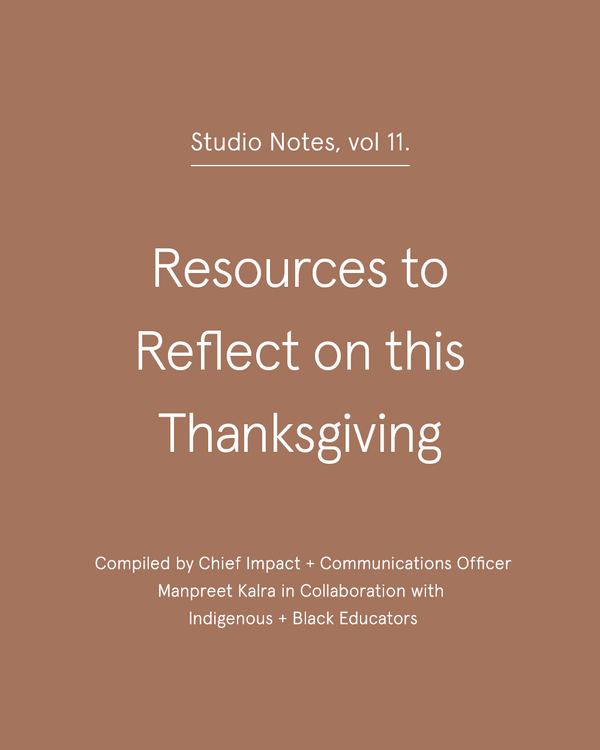Since I started MINNA, I knew I wanted to create a business that did good. But, what is good? What is good enough? How does one measure goodness?
Being good is fairly subjective, and varies from person to person, company to company. We chose to certify as a B Corp for three key reasons: we liked their holistic approach, it gave us a framework to measure ourselves against, and there’s no finish-line. Doing better is always a process. This certification isn’t a finish line, B Corps are required to re-certify every 3 years.
The certification process took us nearly two years, consisting of a rigorous assessment across five areas: Governance, Workers, Community, Customers, and Environment. Something I loved about the assessment is that the questions asked gave us a nudge in directions we can continually improve on, providing us a framework for that improvement.
In order to be certified, a company must get at least 80 points. For reference, an average business might score a 50. Our score came in at 104.3!
The assessment looked at the various ways in which we approach impact. For example, we have a low, low to high payscale ratio, we donated 2% of our revenue last year, and 100% of our team are paid a living wage for an individual living in New York State. Through this process, we were put on two Impact Business Model tracts: supply chain poverty alleviation and arts/culture/media. This is meant to measure “the big picture issues that the company is aiming to solve through its products or operations.” I’ll be transparent and say that I wasn’t super excited about supply chain poverty alleviation as the tract we were put on because I worry about glorifying poverty. We are adamant about our approach to partnership and collaboration with our artisan partners, and are extremely sensitive to never fall into white savior tropes. In the end though, I’m grateful for the framework provided for us to prove this. We now have a third party certifying that what we say is true: we pay fairly, we go beyond paying a living wage in all the regions we work, and we have fair vetting and contract terms. The arts/culture/media Impact Business Model accounted for our dedication to artisanal craft in a world of mass-production.
We are also thinking beyond what B Corp measures. This past year we re-envisioned what it means to measure impact in our Impact Report, we introduced a formal team of advisors who make sure we keep improving, and through team workshops we are committed to building a culture of feedback.
While this score is something to celebrate, we also see that there’s even more room for us to grow. For example: our team is currently 100% white; we have very few environmental measurement standards in place; we don’t have public facing product reviews; we provide only partially subsidized health insurance. There’s more to add there and luckily B Corp provides a guide for continuous improvement. B Corps legally change their Operating Agreements to commit to making decisions that lead to positive impacts on their employees, customers, suppliers, community, and the environment. We're immensely proud to be among and to learn from such an incredible community of businesses.







